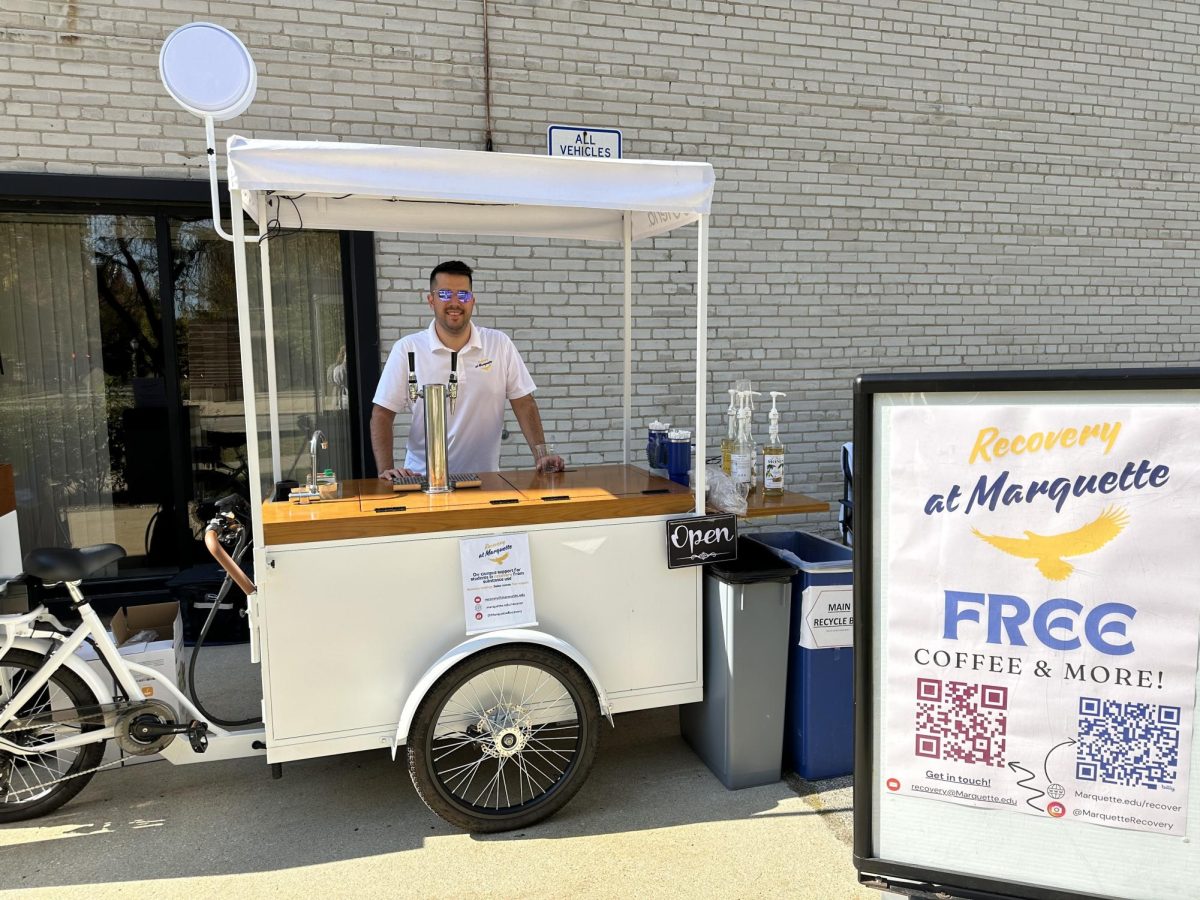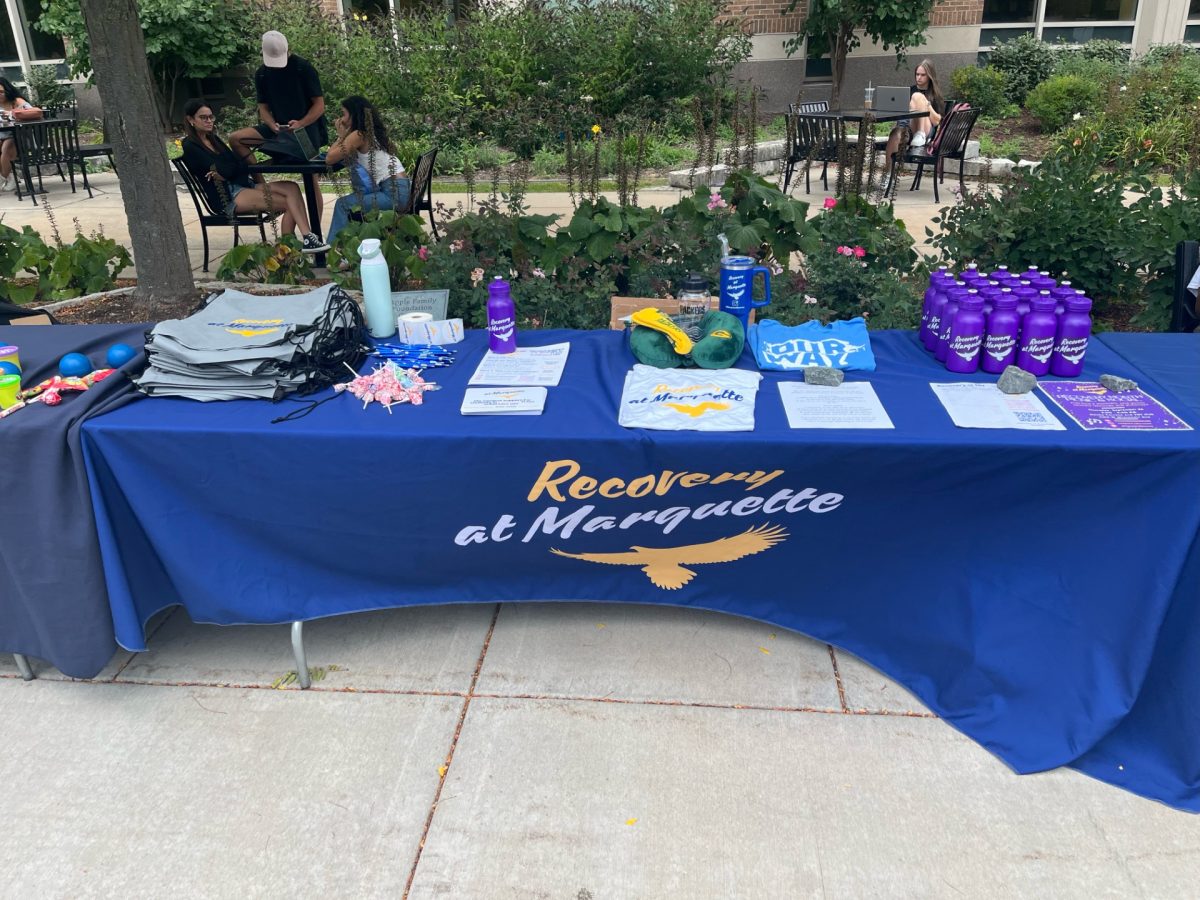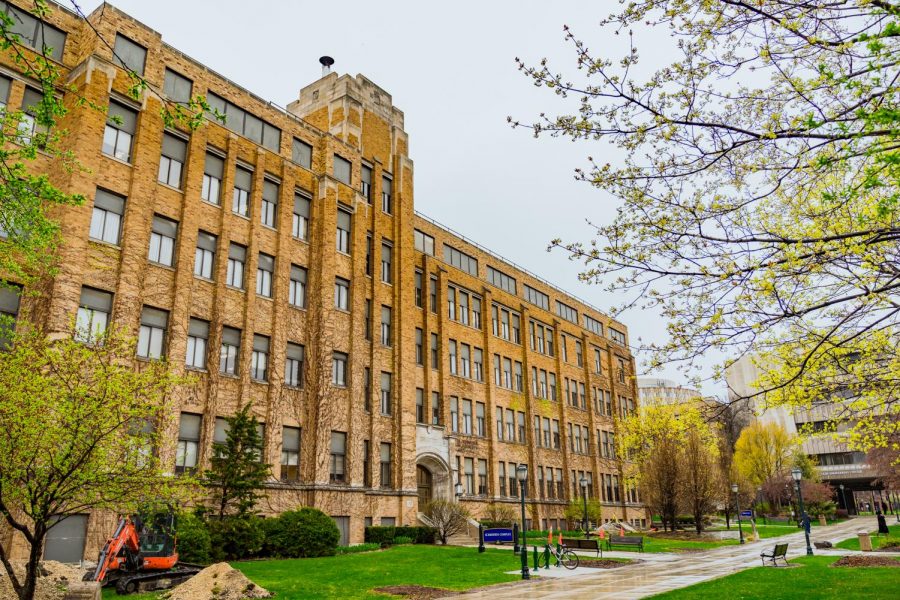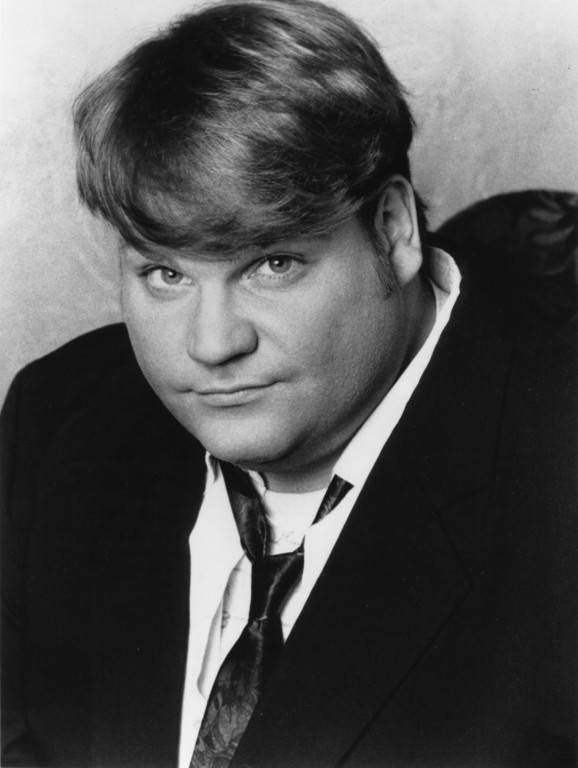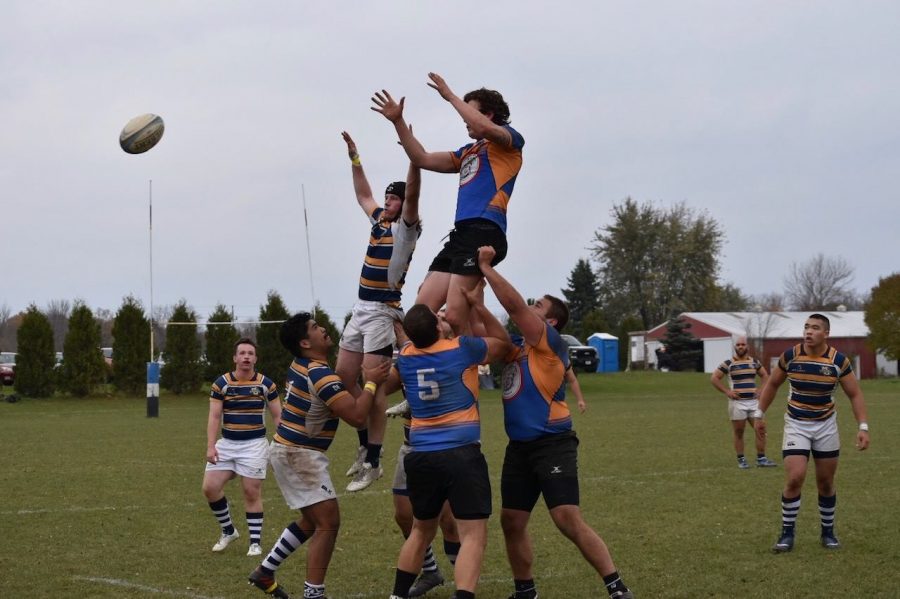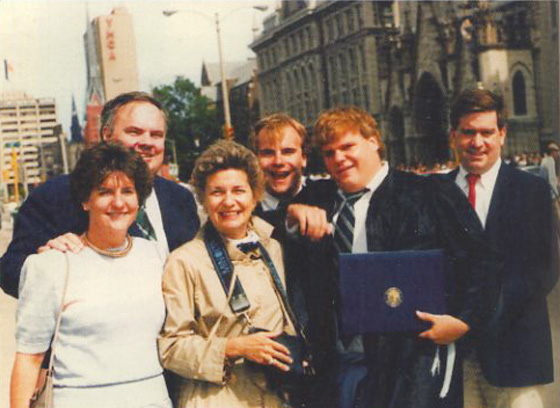
Once identified primarily as the brother of late comedian and Marquette alum Chris Farley, Tom Farley spent years defining himself through loss and hiding pain with humor.
In the years following his brother’s death, Farley would constantly see stigmatized news coverage that claimed addiction was merely a day-to-day choice. Now, he’s working to end that stigma—for Chris and for everyone else in recovery.
But, when Farley takes the stage at the Weasler Auditorium for “An Evening of Recovery,” he won’t just be carrying his brother’s legacy. He’ll be sharing his own.
“My full name, I used to say, was ‘Tom Farley, brother of Chris Farley, who died of a drug overdose,’” Farley said. “Now I just get to be ‘Tom Farley.’”
The 6 p.m. event, hosted by Recovery at Marquette and coinciding with National Collegiate Recovery Day on April 15, will offer Farley a platform to speak openly with the campus community about his journey toward authenticity and healing.
Marquette’s Collegiate Recovery Program aims to support students in recovery from substance use concerns in order to build community, promote healing and holistic health and help students reach their full potential.
“Chris Farley’s legacy can still be felt here on campus, so for someone with such national acclaim to support our program — it really means a lot,” Michael Diaz, a senior in the College of Education and program assistant at the Collegiate Recovery Program, said in an email.
Now, after going through his own recovery journey, Farley is redefining his legacy.
Farley’s journey to recovery
What later turned into a personal exploration of personality and self-worth for Farley first started as an advocacy service. From 1999-2012, he managed The Chris Farley Foundation, a non-profit dedicated to substance abuse prevention.
But what Farley mainly recalls from that time, despite the good work being done by the foundation, is that the persona he was putting out was inauthentic. He explained how he felt a strong desire to control everything around him at all times and hide his true identity in fear of what others would think.
“The attention that was coming from Chris wasn’t enough and didn’t feel right, until I got into recovery myself, telling my own story and getting this natural, authentic connection,” Farley said. “I was being a person that I thought people wanted me to be.”
Once he started on his own recovery journey, Farley learned values like rigorous honesty, gratitude and humility that resonated deeply with him. He began to feel comfortable as his authentic self and got past the fear of people disliking him.
But for Farley, the goal of recovery was not just becoming sober, but also becoming human.
“I’m just honest with myself,” Farley said. “That’s a whole different way of living.”
Family history and Wisconsin drinking culture
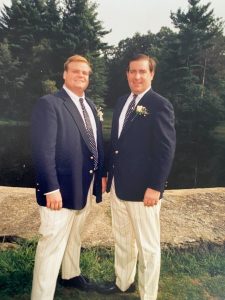
Before Farley became his authentic self, he and Chris were just two brothers growing up in Madison, Wisconsin. Tom said their father, who died less than two years after Chris did, raised them with a deep love for Wisconsin’s natural beauty and work ethic.
But there are other cultural aspects of living in the Badger State that can come at a cost. One, being excessive drinking culture.
A joint study by the Behavioral Risk Factor Survey and the National Survey on Drug Use and Health found that 63.1% of Wisconsinites consumed alcohol monthly in comparison to the 52.2% national average.
Additionally, the study found that 20.3% of Wisconsin residents 18 years and older engaged in monthly binge drinking, higher than the 16.9% national average. For men, binge drinking constitutes consuming five or more standard drinks within a few hours, and for women, four or more standard drinks within a few hours.
“Wisconsin will always be Wisconsin,” Farley said. “But this disease took two people and changed us. I think that’s gonna take a little longer for it to [go away] in the state, but it’s been happening and will continue until we say, ‘No, there’s too much risk. This state is just too important to us.’”
After experiencing Chris’ death due to substance use, Tom explained how it is hard for him to see his brother’s legacy being remembered and passed on at Wisconsin colleges through excessive drinking and Farley-themed parties, which he considers misrepresentative of who his brother was.
“If Marquette is going to have this love of Chris and his legacy, then I would love to have it filtered through the recovery group,” Farley said. “I think that’s using Chris’ name and his love of Marquette in the best way.”
Talking freely about recovery
Even when the two Farley brothers appeared to be at their happiest and most popular, Tom explained that they were hiding immense pain in the form of comedy. He felt like the people around him and Chris never truly saw them for who they were as caring, regular people.
“We could be in the center of a bar or a room, surrounded by people as the center of attention, making everyone laugh, and yet still feel like we’re standing on the surface of the moon,” Farley said.
In the years following his brother’s tragic death, Farley mentioned how healing it was for him to open up about addiction, and how it made him feel less alone.
“We lean on those stigmas because we carry a lot of fear,” Farley said. “When you start to chip away at that fear or become comfortable with the fear because it’s a part of life, all of a sudden change starts to take hold because you aren’t being held back by fear or putting up walls or creating stigmas.”
At the time, the only way Farley said he knew how to manage isolation was to drown his feelings in alcohol. He recalled how he and Chris were terrified of talking about their fears, something considered taboo at the time.
But according to Farley, that stigma surrounding recovery still lives on in his home state, preventing some individuals from feeling comfortable about opening up about their addictions and personal battles.
“I love how Wisconsin embraced Chris,” Farley said. “But on the same token, it’s still a state that carries around that stigma and opinions of the disease that killed him. You can’t have it both ways. You can’t love Chris and laugh at him and yet still perpetuate these stigmas.”
Reducing stigma at Marquette
Like Farley, Collegiate Recovery Program Manager Tim Rabolt is working to normalize conversations about recovery at Marquette and on college campuses across the country. He and other members of the CRP are looking forward to hosting Farley on April 15 because of how strongly his words can impact Marquette students in recovery.
“In my short time at Marquette, I quickly understood how strong of a presence Chris Farley’s legacy had here on campus,” Rabolt said in an email. “I’ve also began to recognize just how much work we need to do in terms of normalizing recovery and reducing the stigma around addiction. Our hope with bringing Tom Farley is to make a big dent in both.”
Rabolt said he hopes to see the Weasler Auditorium filled for Farley at the conclusion of what he considers to be a powerful first year for Recovery at Marquette.
“From the launch of our coffee bike to the opening of our Recovery Resource Center, we’ve made a lot of progress in a short period of time,” Rabolt said in an email. “This event is a big opportunity for a significant exclamation point on our 1-year anniversary.”
And despite Chris tragically being gone for decades now, he will still have a presence in the new Recovery Resource Center in the Wellness + Helfaer Recreation building. After all, Tom is donating a framed photo of his brother that will live in the center forever.
Life can and will get better
The main piece of wisdom Farley said he would offer to young adults in recovery is not to get frozen in fear. He explained how college students can be more susceptible to addiction because they live in a vulnerable state of survival, afraid of losing their identity and their friends if they decide to begin their journey to recovery.
“Once you make that decision, you start to realize that life does get better, and it was never getting better before that. I didn’t think that was possible.” Farley said. “I can take what life throws at me now because I’m moving forward, I’m getting better and I’m doing it because I’m not alone.”
Anyone interested in attending “An Evening of Recovery” on April 15 can register online.
More of Farley’s work can be found at Recovery.com, where he serves as the community outreach director, connecting people with the resources and inspiration they need to heal.
Marquette students in recovery from substance use concerns who are in need of on-campus support can visit the Collegiate Recovery Program website for more information.
This story was written by Mia Thurow. She can be reached at mia.thurow@marquette.edu.


